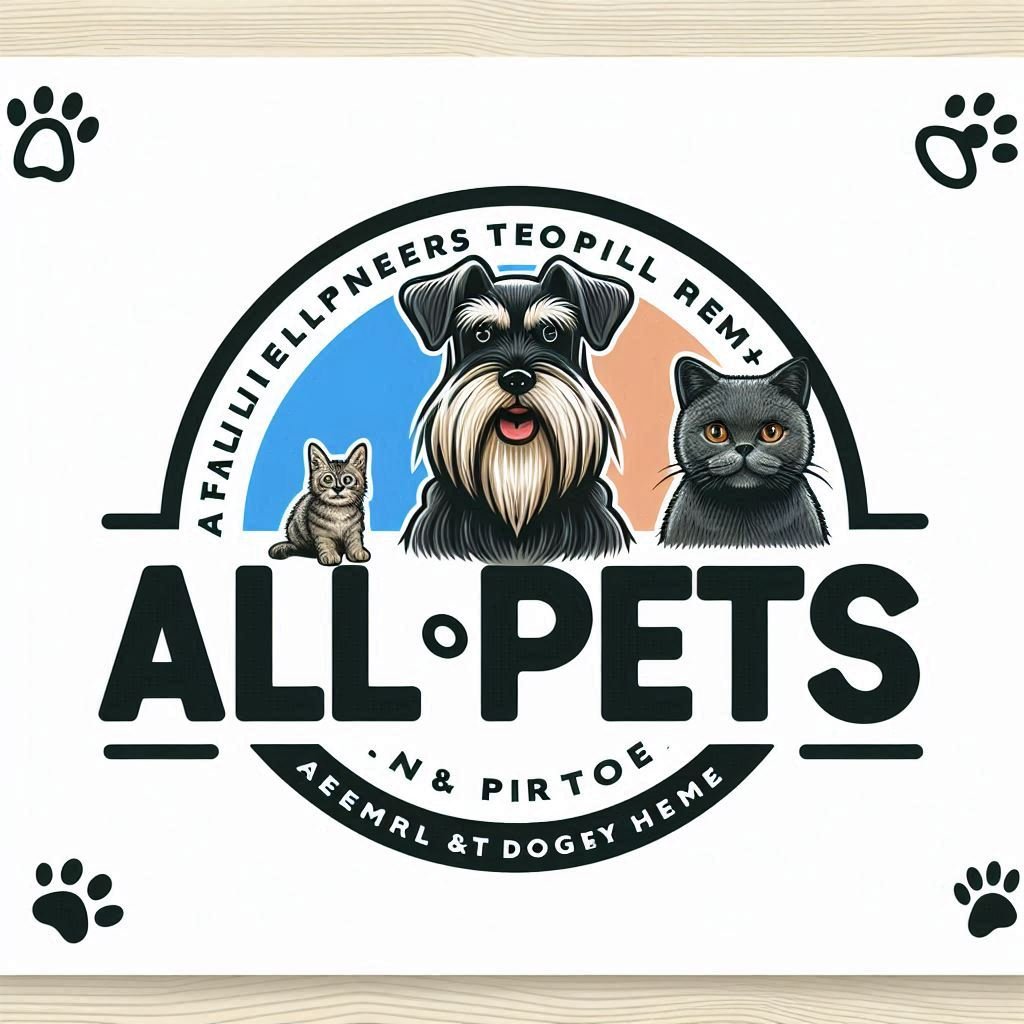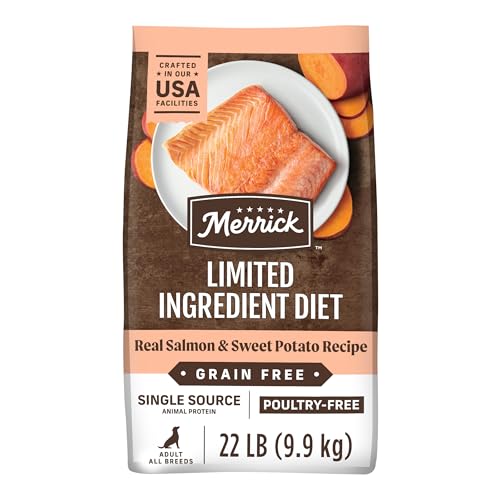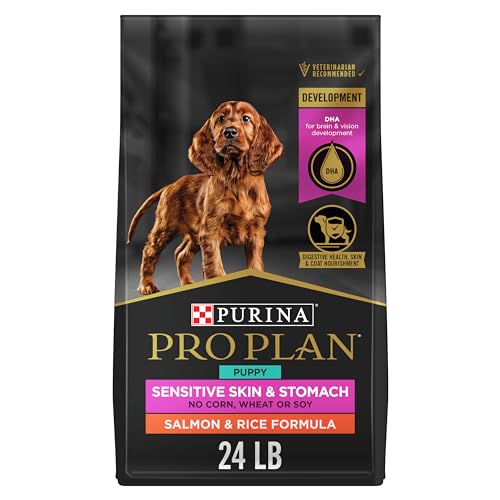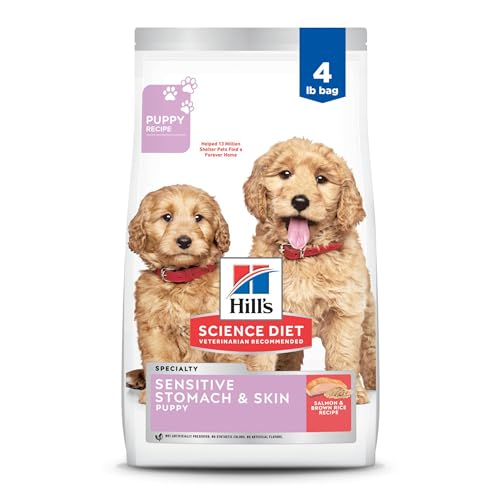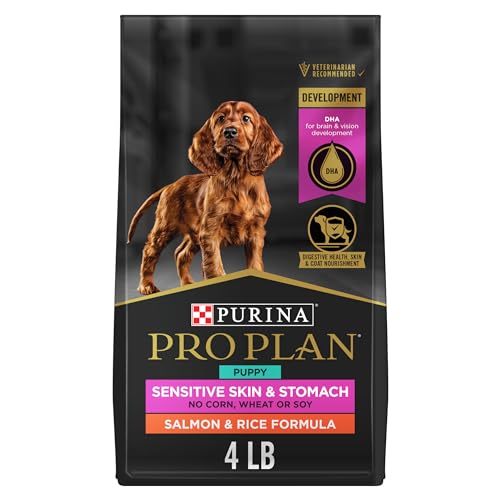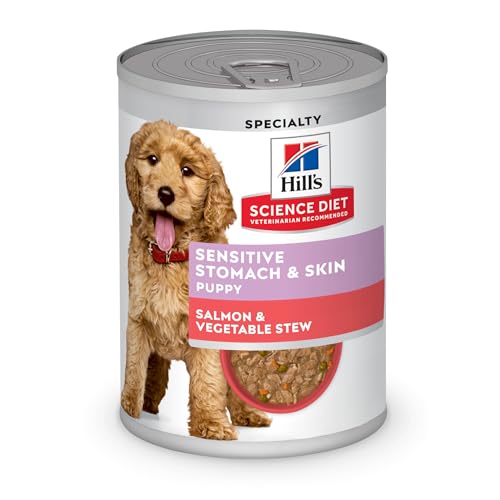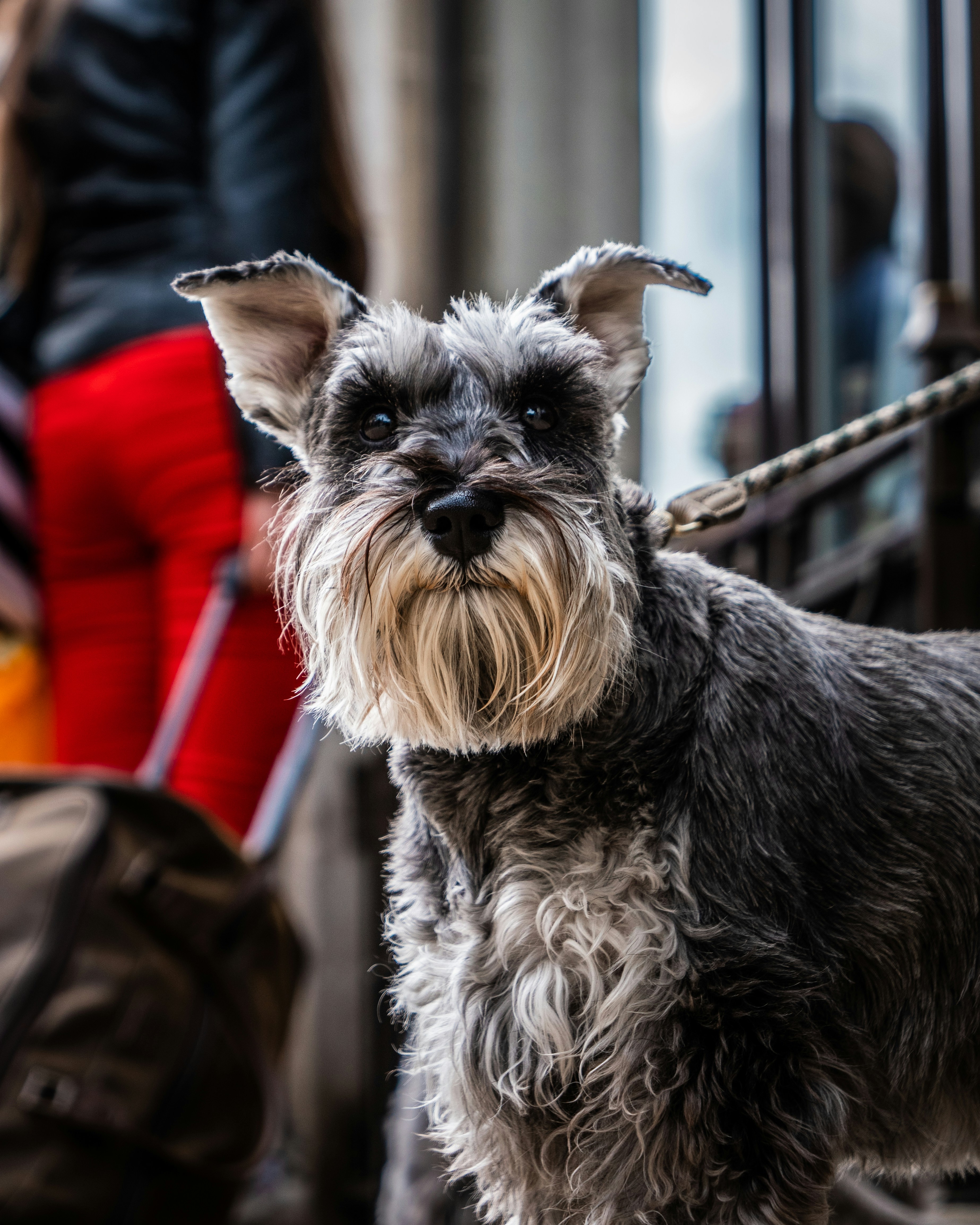
Understanding Schnauzer Health Needs
Schnauzers are a distinctive breed known for their lively personalities and unique appearance. However, like all dog breeds, they have specific health needs that potential and current owners should be aware of. Schnauzers are notably predisposed to certain health conditions, including hip dysplasia, diabetes mellitus, and skin allergies. Regular veterinary check-ups are essential in order to monitor and keep these potential issues at bay.
Nutrition plays a critical role in maintaining the overall well-being of Schnauzers. A well-balanced diet tailored to their specific health needs not only supports their growth and energy levels but can also serve as a preventative measure against various health issues. An optimal diet ensures that Schnauzers receive adequate levels of proteins, fats, vitamins, and minerals required for their development and maintenance. Increasingly, pet owners are recognizing the benefits of a fish-based diet as a viable option for this breed.
A fish-based diet is particularly beneficial for Schnauzers, as it provides high-quality protein along with essential fatty acids, such as Omega-3 and Omega-6. These nutrients are known to help improve skin health and coat quality, which can be advantageous for Schnauzers that tend to suffer from skin allergies. Additionally, the anti-inflammatory properties found in fish can assist in managing joint health, reducing the risk of conditions like arthritis, which some Schnauzers may develop as they age.
Fostering an understanding of the dietary requirements specific to Schnauzers will empower owners to make informed decisions for their pets. Not only can proper nutrition enhance their quality of life, but it can also play a pivotal role in preventing or managing health issues commonly associated with this breed. Emphasizing a specialized diet, particularly one that includes fish, can be a practical step towards achieving optimal health for Schnauzers.
Why Fish is the Healthiest Diet Option
Incorporating fish into a Schnauzer’s diet offers a multitude of health benefits, primarily due to the rich nutritional profile that fish provides. One of the standout components of fish is its abundance of omega-3 fatty acids, which play a crucial role in promoting skin health and enhancing coat shine. Omega-3 fatty acids are known to help alleviate issues such as dry skin and itchiness, which are common among Schnauzers. These essential fats not only contribute to a glossy coat but also support overall skin health, protecting against various dermatological conditions.
Furthermore, fish serves as an excellent source of high-quality protein. Schnauzers, like all dogs, require protein for growth and maintenance of muscle mass, as well as for the synthesis of hormones and enzymes. The digestibility of fish protein is superior compared to many other protein sources, making it easier for Schnauzers to absorb the necessary nutrients. This high digestibility factor can be particularly beneficial for dogs with sensitive stomachs or food allergies.
In addition to omega-3 fatty acids and protein, fish is filled with essential vitamins and minerals such as vitamin D, vitamin B12, and selenium. These nutrients are vital for various bodily functions, including immune response and cognitive health. When Schnauzers are provided with a fish-based diet, they may experience not only a stronger immune system but also improved overall vitality and wellbeing.
Moreover, fish has the potential to reduce allergens that can trigger sensitivities in Schnauzers. Many common protein sources, such as beef or chicken, are known allergens for some dogs. By shifting to a fish-based diet, pet owners may find that their Schnauzers experience fewer allergic reactions, leading to better health and comfort. With these numerous nutritional benefits, it becomes evident that fish is a highly advantageous dietary option for Schnauzers.
Cooking vs. Canned Fish Diets for Schnauzers
When considering the dietary needs of Schnauzers, pet owners often face the decision between preparing fresh fish meals at home and opting for commercially canned fish options. Both choices present distinct advantages and disadvantages that require careful consideration.
Cooking fresh fish for Schnauzers can ensure a high level of nutritional content. Home-prepared meals allow pet owners to select high-quality fish and tailor the diets to their dog’s specific health needs. Fresh fish is rich in essential omega-3 fatty acids, which promote healthy skin and coat, vital for the Schnauzer breed. However, cooking requires time, knowledge of fish preparation, and careful attention to ensure that it is free from harmful additives such as salt or seasoning. Additionally, owners must be aware of potential bones that could pose a choking hazard if not removed properly.
On the other hand, commercially canned fish offers convenience that may appeal to busy pet owners. Canned options are typically pre-cooked and designed to be safe for pets. They are also rich in necessary nutrients and can be a great alternative for pet owners who lack the time or capability to prepare fish meals from scratch. Many canned varieties are also formulated specifically for dogs, ensuring that Schnauzers receive balanced nutrition without the risk of unhealthy additives. However, it is essential to read labels carefully, as some canned fish may contain added preservatives or excessive sodium that could be harmful over time.
Cost can also be a determining factor. While cooking fresh fish might seem more expensive initially, it can be more economical in the long run, especially when purchased in bulk. Conversely, the pricing of canned fish can vary greatly depending on the brand and ingredients used.
In conclusion, both cooking fresh fish and utilizing canned options have their benefits and drawbacks. The choice will largely depend on the owner’s priorities regarding convenience, cost, and nutritional quality, as well as their Schnauzer’s specific preferences and health needs.

Introduction to Homemade Dog Food
The growing trend of preparing homemade dog food has garnered significant attention among pet owners, particularly for breeds such as schnauzers. These dogs, known for their distinctive personality and intelligence, often thrive on diets tailored to their unique needs. The concept of making dog food at home presents an opportunity for pet owners to ensure that their schnauzers receive a balanced and nutritious diet, free from the additives and preservatives commonly found in commercial pet food products.
One of the primary benefits of homemade dog food lies in the quality of ingredients used. By taking the initiative to cook for your schnauzer, you can select fresh vegetables, lean proteins, and wholesome grains that cater specifically to their dietary requirements. This choice allows you to control what goes into each meal, ensuring that your furry friend eats healthily and in line with any specific dietary restrictions they may have, such as allergies or sensitivities. Additionally, a diet rich in homemade food can lead to improved energy levels, healthier coats, and enhanced digestion, contributing to your dog’s overall well-being.
It is crucial, however, to use safe and nutritious ingredients when preparing meals for your schnauzer. Familiarizing yourself with dog-friendly foods and understanding any harmful substances is essential to prevent health issues. Consulting with a veterinarian or a pet nutritionist can be an invaluable step in creating balanced meals that support your dog’s wellness. As you explore the realm of homemade dog food, you will find that it not only fosters a deeper bond between you and your schnauzer but also paves the way for a healthier lifestyle. By adopting this approach to feeding, you can look forward to creating delicious and nutritious meals that will cater to the needs of your beloved pet.
Ingredients You’ll Need for a Healthy Schnauzer Meal
When preparing nutritious meals for your Schnauzer, it is essential to select high-quality ingredients that cater to their dietary needs. Focus on incorporating a variety of protein sources, wholesome grains, and fresh vegetables to create balanced meals. Key protein options for your Schnauzer include fish, which is an excellent choice due to its omega-3 fatty acids that promote skin and coat health. Salmon, cod, and tuna are all suitable fish options that can provide essential nutrients. Be sure to remove any bones and cook the fish thoroughly before serving it to your pet.
In addition to fish, plain oatmeal offers a great source of energy and fiber. It is digestible and acts as a fantastic carbohydrate source, making it a valuable component in your Schnauzer’s diet. Select steel-cut or rolled oats and ensure they are cooked and unflavored, avoiding any added sugars or artificial flavors.
Vegetables play a crucial role in providing vital vitamins and minerals. Incorporate peas and carrots into your Schnauzer’s meals, as they are rich in antioxidants and contribute to overall immune function. Peas are also a great source of protein, while carrots are excellent for promoting healthy vision. To enhance the dish and provide healthy fats, consider adding a small amount of olive oil. This oil is beneficial for their skin and coat as well.
Moreover, vitamin oils such as vitamins A, D, E, K, B complex, and C are significant in ensuring a well-rounded nutrition profile for your Schnauzer. These vitamins support overall health and immune function. When preparing meals, it is crucial to balance these ingredients to promote optimal health for your beloved Schnauzer.
Step-by-Step Recipe Guide for Schnauzer Meals
Preparing nutritious meals for your schnauzer can be a simple and rewarding experience. This step-by-step guide will walk you through the process of creating a wholesome meal tailored to your dog’s dietary needs, focusing on key ingredients like fish, oatmeal, and vegetables.
To start, select a lean fish suitable for schnauzers, such as salmon or cod. Begin by boiling the fish in a pot of water. Ensure the water is brought to a gentle boil before adding the fish. Cook for approximately 10-15 minutes, or until the fish is fully cooked and flakes easily with a fork. Once done, remove the fish from the pot and allow it to cool before flaking it into small, manageable pieces for your schnauzer.
While the fish is cooking, you can prepare the oatmeal. In another pot, bring two cups of water to a boil and slowly add one cup of oatmeal. Stir frequently to prevent clumping. Reduce the heat to a simmer and let it cook for about 5 minutes until the oatmeal reaches a creamy consistency. Once cooked, set it aside to cool.
Next, wash and chop a selection of vegetables that are safe for your schnauzer. Common choices include carrots, green beans, and sweet potatoes. Steam these vegetables until they are tender, which usually takes about 10 minutes. After steaming, chop them into small pieces to make them easy for your dog to consume.
Now, it is time to combine all the components. In a mixing bowl, combine the flaked fish, cooked oatmeal, and chopped vegetables. Ensure that you mix them thoroughly to create a balanced meal. It is crucial to follow portion control based on your schnauzer’s weight and dietary needs, as this helps maintain optimal health. Consider consulting with your veterinarian for guidance on appropriate portion sizes.
Finally, feel free to customize the ingredients to suit your schnauzer’s preferences by incorporating alternative vegetables or protein sources, always aiming for a balanced meal. Once you prepare this dish, your schnauzer is sure to enjoy the hearty and nutritious meal you’ve created. Always remember to introduce new foods gradually and monitor your dog for any adverse reactions.
Nutritional Benefits of the Recipe and Additional Resources
Preparing homemade meals for your schnauzer not only enhances their mealtime experience but significantly contributes to their overall health and well-being. Each ingredient used in these nutritious recipes plays a vital role in maintaining a balanced diet. For instance, lean meats such as chicken or turkey provide essential proteins that support muscle development and repair. Additionally, incorporating vegetables like carrots and peas offers fiber, vitamins, and minerals that promote digestive health and boost the immune system.
Whole grains, such as brown rice or quinoa, provide energy and help maintain a healthy weight, while also offering nutrients that are beneficial for your schnauzer’s coat and skin. Furthermore, healthy fats like those found in fish or flaxseed oil contribute to brain health and enhance coat shine. These nutritional components work synergistically to ensure that your schnauzer receives a comprehensive diet that addresses their specific health needs.
To further enhance the nutritional value of your schnauzer’s meals, consider incorporating vitamin oils. These supplements can provide additional support for joint health, cognitive function, and overall wellness. Many pet owners find that adding such vitamin oils leads to improved overall energy levels and vitality in their pets. You can conveniently purchase these vitamin oils from various online retailers or specialty pet stores, ensuring that you choose high-quality options that are safe and beneficial for your schnauzer.
In exploring additional recipes and information related to dog nutrition, it is essential to focus on providing a well-rounded diet tailored to your schnauzer’s specific needs. Balancing protein, carbohydrates, and fats will help maintain not just physical health but also longevity. Delving into various homemade meal alternatives can empower you to contribute positively to your pet’s diet, ultimately enhancing their happiness and vitality.
Practical Tips for Transitioning to a Fish-Based Diet
Transitioning your Schnauzer to a fish-based diet can be a smooth process if approached thoughtfully. The key is to introduce the new food gradually to minimize digestive upset and to ensure your dog continues to enjoy mealtime. Start by mixing a small amount of fish-based food with their current diet. A recommended approach is to begin with a 25% ratio of the new food to their regular kibble, gradually increasing the fish content over 7 to 10 days. This slow transition helps your Schnauzer’s digestive system adjust to the new source of protein.
Observe your dog’s response to the new diet closely during this period. Look out for signs of digestive upset, such as diarrhea or vomiting. If any concerning symptoms arise, it may be beneficial to revert to the previous diet temporarily and consult a veterinarian for advice. Ensuring that the fish-based food meets the nutritional needs of your Schnauzer is paramount, thus choosing a high-quality product that is specifically formulated for your dog’s size and age is essential.
As you transition, consider incorporating a variety of fish types into your Schnauzer’s diet. Salmon, sardines, and mackerel are excellent options that are rich in omega-3 fatty acids, providing additional health benefits. Mixing multiple fish sources can also help prevent your dog from developing any aversions to a single flavor. Additionally, monitoring your Schnauzer’s health and weight during this transition is crucial to ensure they are thriving on their new diet.
For those who wish to prepare homemade fish-based meals, it is advisable to consult veterinary resources or nutritionists to ensure formulations are balanced. There are many online resources and recipes available that cater specifically to dog diets, helping you create tantalizing fish dishes that satisfy your Schnauzer’s taste buds while promoting health. With patience and observation, your Schnauzer can successfully adapt to a nutritious fish-based diet. below are some great links to my personal favorite dog food brands for my own dogs at home and many others. I’ve also added some puppy’s foods as well! enjoy.
- Grain-Free Recipe: Crafted without grains, this stew is gentle on your small breed adult dog’s tummy
- Tuna & Salmon Flakes in Gravy: Real tuna and salmon flakes in a savory gravy for a taste your dog will love
- Perfect for Small Breeds: Formulated to meet the nutritional needs of small adult dogs
